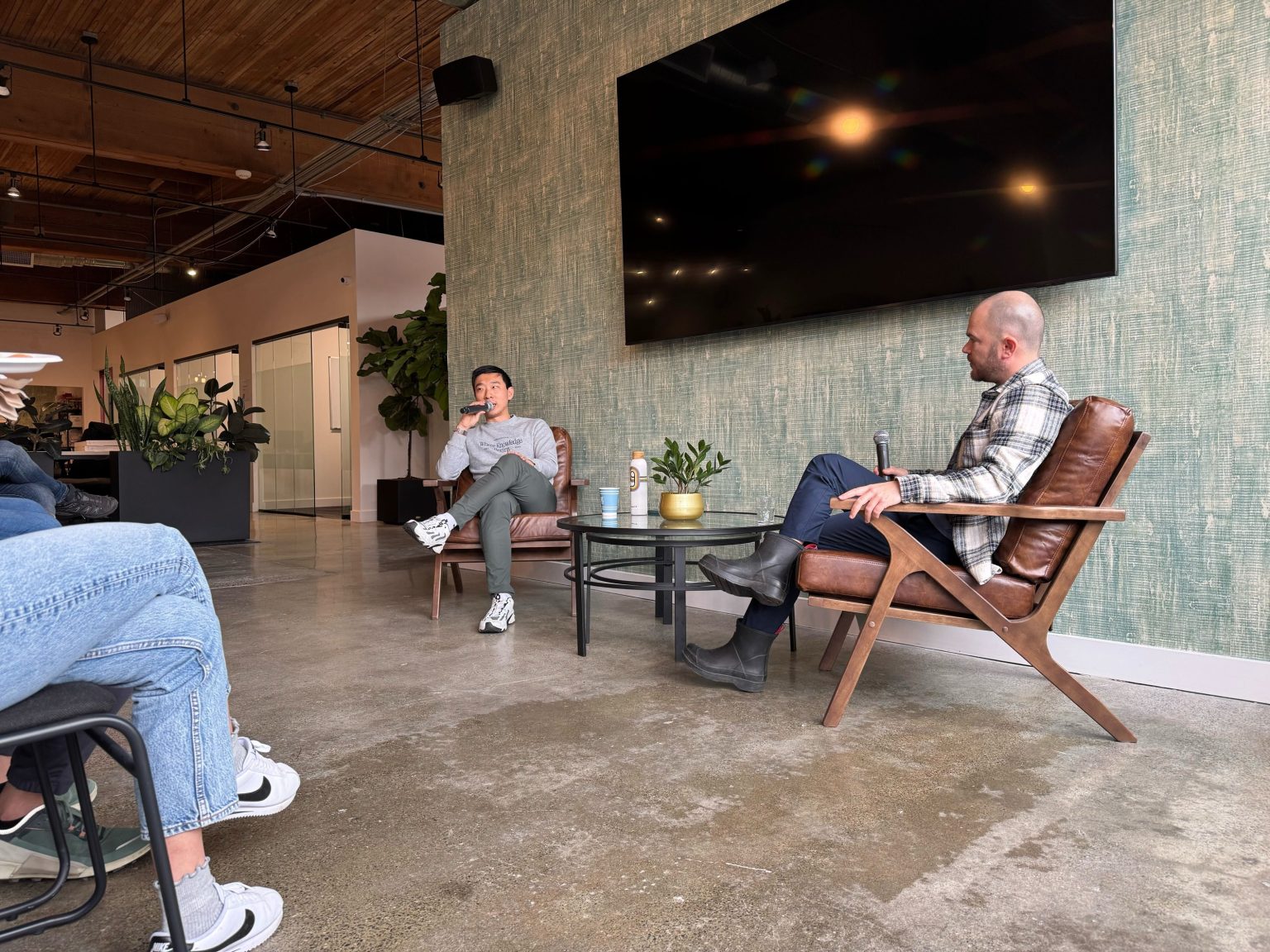Summarize this content to 2000 words in 6 paragraphs
Derek Tu (left), who sold his Seattle startup Carbon to Perplexity, speaks with Aviel Ginzburg at a Foundations event. Ginzburg helped launch Seattle-based Foundations last year. (Foundations Photo)
Aviel Ginzburg spent years learning what makes a startup accelerator effective for founders. Now he’s applying those lessons to a new Founder-in-Residence program at Foundations, the Seattle-based startup community that launched last year.
The program puts a new spin on the traditional startup accelerator model — namely, not requiring founders to give up equity, and accepting companies at varying levels of traction.
Ginzburg, a Seattle-based venture capitalist who previously ran Techstars’ Amazon Alexa accelerator, helped create Foundations as a way to support early stage founders. The organization set up its business model so that it could fund operations without requiring an exchange of equity with participating entrepreneurs.
Ginzburg said founders often have to figure out whether the value provided by an accelerator is worth giving up ownership in their fledgling startups.
“What we’ve done is removed that from the equation,” he said. “So instead, they say, ‘is this worth my time?’”
The program will accept both founders that are just forming their new companies, along with those that have already raised investment or participated in another accelerator.
Companies will be matched with mentors from the Foundations membership, which includes longtime entrepreneurs and investors from the Seattle tech ecosystem. Those mentors may independently invest in companies participating in the program.
The program, which is open to members of Foundations’ invite-only community, operates on a rolling basis, and companies are expected to “graduate” within six months. Ginzburg expects to have about 30-to-40 founders participating at any given time.
Companies will have access to “founder circles” and are encouraged to participate in pitch clinics and product demos held at Foundations’ office space in Seattle’s Capitol Hill neighborhood.
The program is focused on being more “pull-oriented,” Ginzburg said, allowing founders to pick and choose what is helpful.
“If you could dream up the ideal accelerator from the founder perspective, this is what it would be,” he said.
Ginzburg said he’s been encouraged by the dynamics happening between founders within Foundations, many of whom are technical-oriented and focused on AI-related startups. Founders are pivoting and tweaking their strategies based off discussions within the group, and using each other’s products to help run their businesses.
“I haven’t seen that behavior replicated outside of Y Combinator,” Ginzburg said.
Foundations, which now has 200 members, is filling a gap left by the surprise departure of Techstars Seattle a year ago. It’s one of several startup groups in the Seattle region aiming to help founders, including Pioneer Square Labs, the AI2 Incubator, and others.
Plug and Play, a Silicon Valley-based group that operates innovation programs, recently announced two new accelerators in the Seattle region. Other accelerator programs include Creative Destruction Lab, Startup Haven, Maritime Blue, and Jones + Foster.
Ginzburg said he’s focused on the notion of a “rising tide lifts all boats” as he helps grow Foundations.
“We have amazing talent. We have amazing people,” he said of Seattle’s tech and startup community. “We just need to get everyone together and support them in building something great.”
Previously: Inside the new ‘serendipity factory’ trying to spark the startup scene in Seattle


